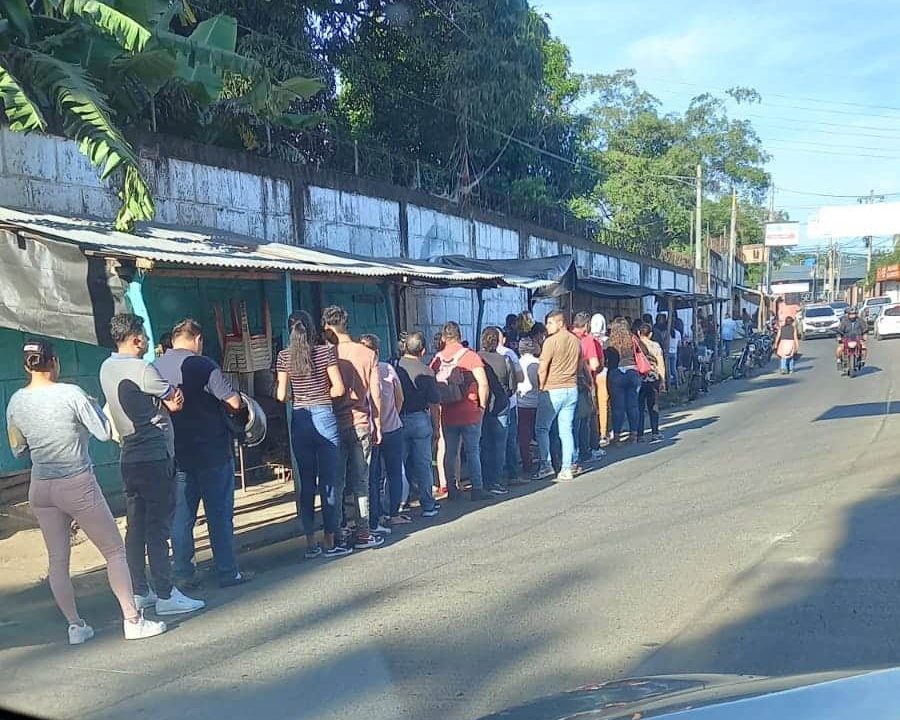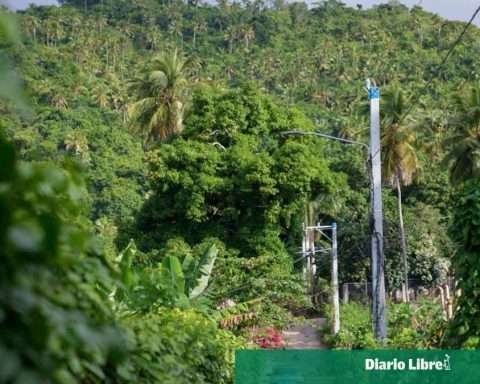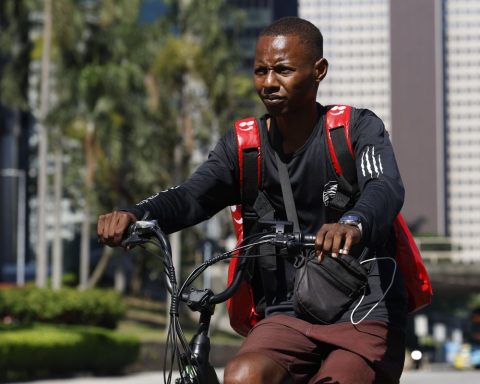The latest CID Gallup poll conducted between September 26 and October 10 allows data to support the conclusion that anyone can reach empirically: there is a direct correlation between the dire economic situation of the interviewee and his conviction that the country has no future, with the decision to leave the country. Anywhere.
“Those who want to emigrate show themselves to be the most disappointed: they are the ones who most believe that the country is heading in the wrong direction, those who have the worst family economic situation compared to a year ago, and those who least believe that Ortega will solve their concerns. In other words, if they finally migrate, they will do so with the certainty that whichever country they choose (the United States, Costa Rica, Spain or Canada, among the preferred ones), they will have a better economic and political future for themselves and their families”, points to the document.
The responses of those surveyed show that 80% of those who believe that the cost of living has risen “somewhat” or “a lot”, are among those who have a greater desire to emigrate, while this desire is less among those who believe that, for them, the cost of living “is the same”, or “has risen a little”, in the four months prior to the survey.
The public opinion study was conducted through telephone interviews with 1,200 citizens, and has a margin of error of +/- 2.8. The measurement focused on Nicaraguans over 16 years of age, with a cell phone with an active line, distributed throughout the country.
The cost of life
The text shows that, last May, 58% of those who answered the questionnaire thought that the cost of living had risen “a lot” or “somewhat”, but in September, that percentage included three quarters of those surveyed, which which is directly associated with data from the National Institute of Development Information (Inide), which placed the cost of the basic food basket at about USD 495 per month (8% more than in January 2022), while the monthly minimum wage remains at about 130 dollars.
The responses to the state of the family economic situation, compared to a year earlier, reinforce these conclusions: after bottoming out in 2019 and 2020 (the years of the socioeconomic crisis and the pandemic), the responses improved substantially in January and May 2022, when 32% and 34%, respectively, said they were better off.
In parallel, the number of those who were worse off increased (59% and 62%), while the number of those who said their situation was the same decreased. That changed in the September survey, when the number of those who were satisfied fell by six points (from 34 to 28), while the number of those who felt that they were worse off grew by two more points (from 62 to 64), with which the gap between them, which in January was -27, already falling to -28 in May, rose to close September at -36.
Pessimism remains for the future. The data shows that a little more than half think that the economic situation of their family will be worse than at present. If last January, 50% of those surveyed had hopes that their economic situation would be better in the following year, only 45% thought the same in May, and only 38% still believed it in September.
When trying to explain it, the document says that this 38% “is optimistic and does expect a positive change for the coming year. The latter are more likely to have reported having a better economic situation this year, to be young people between 18 and 24 years old, or to have little or no probability of emigrating.

The reasons for the exodus from Nicaragua
“Lack of employment”, “government corruption”, and the “high cost of living” are consistently the three main problems that overwhelm 69% of Nicaraguans, according to the survey. Those percentages fluctuated to mark 72% in January, 71% in May and 68% in September 2022, showing the importance that citizenship attaches to them.
In particular, if in the measurements of September 2021 and January and May 2022, there was a high perception of government corruption as the main problem reported by those surveyed, shortages and unemployment grew in each of these measurements, until leaving to corruption in third place during the September 2022 survey.
In this last opinion exercise, economic problems worried half of those surveyed: 26% lamented the lack of employment, while another 24% pointed to the high cost of living as their main concern, leaving government corruption in third place. with 18%, although generally, it is conditioned to those.

The youngest are the first to want to leave
Regarding migration, 57% of those surveyed indicated as “very likely” and “somewhat likely” that they would leave the country “if they had the resources to do so”. This group is made up prominently of those under 40, as well as those who said their economic situation is worse.
By destinations, the United States continues to be, by far, the preferred country to migrate to: 51% of those who said it was “very likely” or “somewhat likely” would choose that North American nation to reside. Another 15% pointed to Costa Rica, while 9% would choose Spain, and 5% Canada.
The report specifies that “historically, the country that receives the most migrants is the United States, and in this measurement this data was no exception: half of the population with the intention of emigrating would do so to that North American country…. In a distant second place is Costa Rica, preferred by 15% of those who indicate that they would emigrate, probably because of its proximity and low cost… in contrast to the next two countries on the list: Spain and Canada”.
Almost two-thirds of those who want to leave (60% of those surveyed who responded positively) are very clear about their reason for seeking new horizons: abroad there are more job opportunities than in Nicaragua, in addition to better salaries.
“Again, unemployment as the main concern of the family and the country finds a way out of the problem in the intention to migrate. The other reasons are far below: there are no opportunities, there is a lot of violence, and they are letting people in,” details the summary of the survey’s findings.
Most of those who want to leave are young, have predominantly primary and secondary education, and live outside of Managua.
The report reveals that 54% of the families of the people consulted are in a condition of food insecurity; 18% report that at least once a month they did not have money to buy food; 19% of those with only primary education report that “all the time” they are in a situation of not having money to eat, and 13% of those with secondary education say that this happens “two to three times a month” .
Nicaragua continues down the wrong path
Until 2017, 49% of the population thought favorably that the country was on the right path, and only 39% thought the opposite, which gave the regime a margin of ten points of favorable opinion. That changed radically from 2018, when the regime really showed what it was made of, and what it was capable of, by ordering the massacre of (at least) 355 citizens, as well as injuring and imprisoning many thousands more.
As a result, the gap changed to -35, the product of 28% positive opinions, offset by 63% negative ones. It deepened further in 2019 when it reached -54 (17% positive against 71% negative), and has remained in negative territory since then, until culminating this 2022 in -31, product of 33% of respondents who think that the country is going ” on the right track”, versus 64% who say precisely the opposite.
Given his self-assigned position in the November 2021 elections as head of state and of the Nicaraguan government, Daniel Ortega is the main reason for citizens to disapprove of government management according to the survey, obtaining more negative than positive opinions.
“In a context of lower economic growth, high crime rates and tension in international relations, Ortega’s management is resented by the majority group of his fellow citizens. Those who rate his work well, register below 40% approval and gather around a third of the adult population, ”says the summary.
With the exception of those who say that their economic situation is “better”, all the other segments give Ortega a negative rating: those from Managua and those from the rest of the country; those between 18 and 24 years old; those in the segment from 25 to 39, and those over 40; those with only primary education, but also secondary school and university students, along with those whose economic situation is the same as or worse than last year, and those who measure “somewhat”, “a lot”, “a little” or ” nothing”, his intention to leave the country.
The payment of bribes and the opinion of businessmen

The results of the CID Gallup survey, carried out in September, also reveal that, although the majority still thinks poorly of entrepreneurs, their image has improved among the population. If in May there was a gap of 35 points between the 31% who said that “almost always” businessmen do what is best for the people, and the 66% who thought otherwise, in September that changed to 39% and 65% respectively, leaving the opinion gap at 16 points.
“The opinion about the actions of businessmen improved in relation to the first two surveys of this year. Four out of ten think that they do what is best for the town always or almost always. However, the percentage that predominates is the one that thinks that businessmen never or almost never do what is good for the people (55%), “says the document.
In line with the high perception of government corruption reported by citizens, in the September survey, 44% think that paying a bribe speeds up procedures in government agencies (they were 53% and 49% in the two previous surveys), while the number of those who think that paying a bribe does speed up procedures has decreased: the number dropped from 53% who thought so in January, to 44% in September.

















